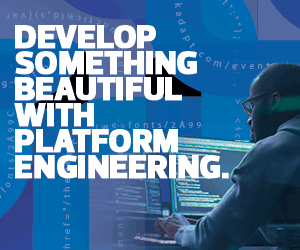What Is Platform Engineering?
Gartner defines platform engineering as “an emerging technology approach that can accelerate the delivery of applications and the pace at which they produce business value.”
“Platform engineering improves developer experience and productivity by providing self-service capabilities with automated infrastructure operations,” Gartner states in an October 2023 article on the topic. “It is trending because of its promise to optimize the developer experience and accelerate product teams’ delivery of customer value.”
While this definition — and these benefits — may sound similar to how many industry observers talk about DevOps, that is because platform engineering is an emerging approach to improving the DevOps processes that organizations have adopted over the past several years.
“A clear differentiator is that DevOps is a way of delivering software, while platform engineering is a specific tactic for making DevOps more efficient,” explains Jim Mercer, a research vice president for DevOps and DevSecOps at IDC. “To be clear, platform engineering is not replacing DevOps, it is enhancing it.”
LEARN MORE: Find out why IT team training matters in improving DevOps.
More specifically, Mercer says, platform engineering is an approach that seeks to automate and simplify work for developers, who have borne much of the burden of DevOps complexity.
“Organizations are now treating the platforms they provide to developers as an actual product, with a dedicated product manager who treats the developers as the customer that he wants to win over,” Mercer explains. “The key impact is operational efficiency, achieved by removing friction from development workflows and reducing their cognitive load by providing a self-service centralized platform that includes automated tooling and workflows.”













